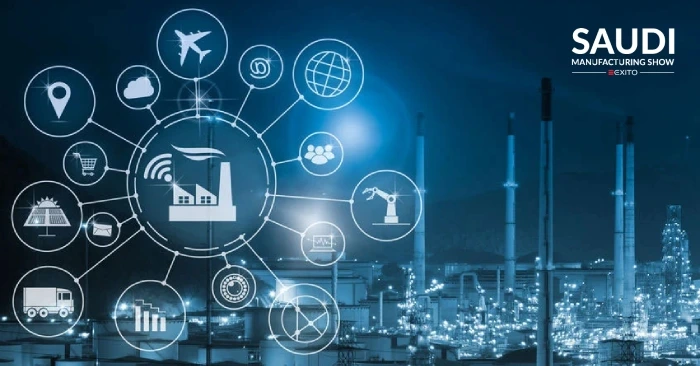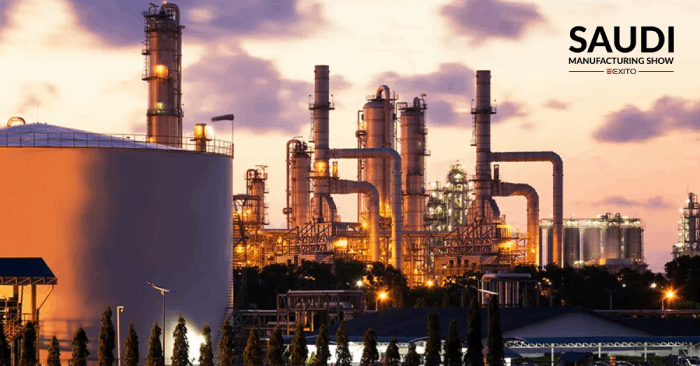In the rapidly evolving landscape of manufacturing, digital transformation has emerged as an imperative for organisations to remain competitive and achieve sustainable growth. As Saudi Arabia embraces its ambitious Vision 2030 agenda, digital transformation plays a pivotal role in driving economic and social progress.
Embracing digital change equips organisations with the necessary tools to adapt to future technologies, foster enhanced efficiency, productivity, and innovation. It becomes the key to unlocking growth and success in the dynamic landscape of Saudi Arabia, where the transformation of traditional manufacturing practices is essential for growth.
The Saudi Manufacturing Conference 2023 provided a platform for manufacturers to explore ways to level up in this ever-changing industry. In this article, we will delve into how Anaplan, a leader in connected planning, paves the way for digital transformation, offering collaborative, end-to-end supply chain solutions. We will explore how organisations can capitalise on the opportunities presented and achieve their goals in the rapidly advancing manufacturing ecosystem of Saudi Arabia.
Supply Chain Planning: From Silos to Seamless Collaboration
Supply chain planning lies at the core of efficient manufacturing operations. Despite this importance, many organisations still rely on traditional methods, such as Excel, leading to siloed and disconnected planning processes. The heavy reliance on spreadsheets can impede sustainable growth, as isolated planning practices, bottlenecks, and delays hinder decision-making and responsiveness to market changes.
Anaplan provides a transformative solution by offering collaborative, end-to-end supply chain planning applications. The enterprise planning solution allows organisations to gain a tighter control over corporate data, offering flexible security levels that enable safe participation in the planning process while tracking all changes for audit purposes. Anaplan’s platform simplifies data management, boosts productivity, and shifts the focus from data upkeep to data analysis, empowering organisations to become more agile and proactive in their planning approach. By embracing Anaplan, organisations can break free from the limitations of spreadsheet-based planning.
But that’s not all – Anaplan also empowers enhanced efficiencies across all functions, ensuring a seamless and connected planning solution. Anaplan has the versatility to connect with various functions like Finance, Workforce Planning, and Sales & Marketing. By utilising these different modules, businesses can eliminate silos, and establish a holistic approach to planning.
Embracing Advanced Technologies for Manufacturing Maturity
As Saudi Arabia strives to drive maturity in the manufacturing sector, embracing advanced technologies becomes a crucial aspect of digital transformation. Anaplan aligns perfectly with this vision, offering a platform that incorporates artificial intelligence (AI) and machine learning (ML) capabilities.
PlanIQ empowers users to connect large volumes of historical data with internal data, enabling precise forecasting. Forecasting accuracy is a critical factor that influences the efficiency of the entire supply chain. Plan IQ provides a full suite of advanced AI/ML forecasting models, ensuring access to the best-of-breed forecasting methods for better results. These advanced tools and features solidify Anaplan’s position as a versatile and capable platform, addressing a wide range of needs and complexities for businesses seeking success.
Ambition of people and the potential of our younger generations: Empowering the Future Workforce:
The success of any digital transformation initiative relies on the capabilities of the workforce to adopt and implement new technologies. Educating the local workforce on emerging technologies becomes vital to ensure a seamless transition.
Anaplan’s zero code technology offers a user-friendly platform that requires minimal technical expertise. This means that even employees without extensive programming knowledge can leverage the power of Anaplan to streamline supply chain planning. By investing in training and upskilling, organisations can create a future-ready workforce that is proficient in using innovative planning tools like Anaplan.
The Saudi Manufacturing Conference 2023 provided invaluable insights into the significance of digital transformation in the manufacturing sector, presenting many opportunities for businesses in pursuit of their Vision 2030 goals. If your organisation is seeking a game-changing solution to overcome the challenges of modern supply chain planning in manufacturing, we invite you to connect with one of our experts at www.anaplan.com.




